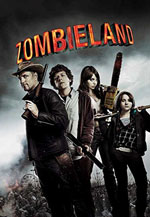(August 4 – 10)
This week I submitted a story to a magazine—my first submission in ages—and received a rejection two days later. I thought this provided a reasonable excuse to share my philosophy on rejection.
First of all [side note] getting a rejection within two days is actually a really awesome thing. Most of these markets have limited staff available and will, unavoidably, take much longer than that to provide a response. All this time you’ll be clinging by your fingernails to the edge of the cliff, wondering if this is finally the story that gets picked up. Getting that repose quickly means you can pick yourself and move on that much sooner.
More broadly, I see rejection is a good thing. It means you’ve written something. It means you’ve finished something. And it means you feel good enough about that something to send it out into the world. Rejection doesn’t happen without any of those things happening first: rejection is a sign that you’ve achieved something, and you can wear that proudly.
Furthermore, rejection doesn’t mean that your story is bad, or a failure. It can mean one particular person (the one reading your submission) didn’t connect with your story. It can mean the magazine already has (or recently published) a story with a similar idea. It can mean the publisher already has enough stories for that month. It can mean your story wasn’t quite the right fit for that market. It can mean one of a dozen relatively minor things, none of which reflect on the quality of your work. The chances of you having the right story at the right time are considerably smaller than the chances of your story genuinely not being any good.
Finally, and this is the most important thing: rejection is not something to get frustrated about. I’ve had a small number of very nice rejections, ones which offered me some insight into what the reader thought, but most of my rejections are along the lines of “it just didn’t work for us”. As a writer I do find that a little frustrating: not only did you not want my story, but you’ve barely even told me why. However, a minute later I remind myself that this isn’t actually about me—this is about someone else’s publication. At the other end of that email is someone who has probably spend hours, maybe even days, trawling through stories knowing they can only pick a few. They need to clear their head so they can read the next story objectively, and the one after that. If they stop to analyse my story then it’s going to require a whole lot more time than writing “it just didn’t work for us”.
At the end of the day someone else is giving up their time, possibly devoting their livelihood, to give you the opportunity to send them a story. Whether or not your story makes the cut, that opportunity alone is pretty awesome.
Watching

On Sunday I watched Zombieland for the first time (at the Elderbeast’s suggestion)—only about ten years after people first started raving about it. Luckily it lived up to the hype, largely due to the strong characterisation (and matching performances). The overarching storyline was arguably a bit formulaic, but having unconventional characters (in a slightly unconventional scenario) delivering that plot went a long towards making it feel fresh. And, sure, I remember all the funny bits, but more importantly, I came away from the film feeling that I’d been on a journey with these characters. I can now go off and watch the sequel and spend the whole time wondering how none of the cast has aged over the last ten years.

I also, finally, checked out The Disaster Artist. Like many fans of bad films, I count The Room among my favourite movies of all time, so the news that someone of James Franco’s caliber was making a movie all about the making of The Room was hugely exciting news. Naturally, I then proceeded to completely fail at watching the movie for several years.
What I really liked about The Disaster Artist is that it isn’t just about The Room. It’s about the relationship between Tommy Wiseau and Greg Sestero (who wrote the book that the film is based on). It also make an attempt to life a tiny part of the veil from the enigma that is Tommy Wiseau. In short you get a great drama about two friends, but then you also get the lovingly recreated moment from The Room too—and, if you ever watched The Room, you can be assured that for every single scene you had questions, the cast and crew had the same questions.
Now I just need to get on and watch The Room again.
Reading
No big reading news this week, but I have enjoyed continuing to listen to the Scriptnotes podcast. So, if you like listening to people chatting generally about the movie business and script-writing (and knowing that those people are speaking from experience) then give it a listen.
